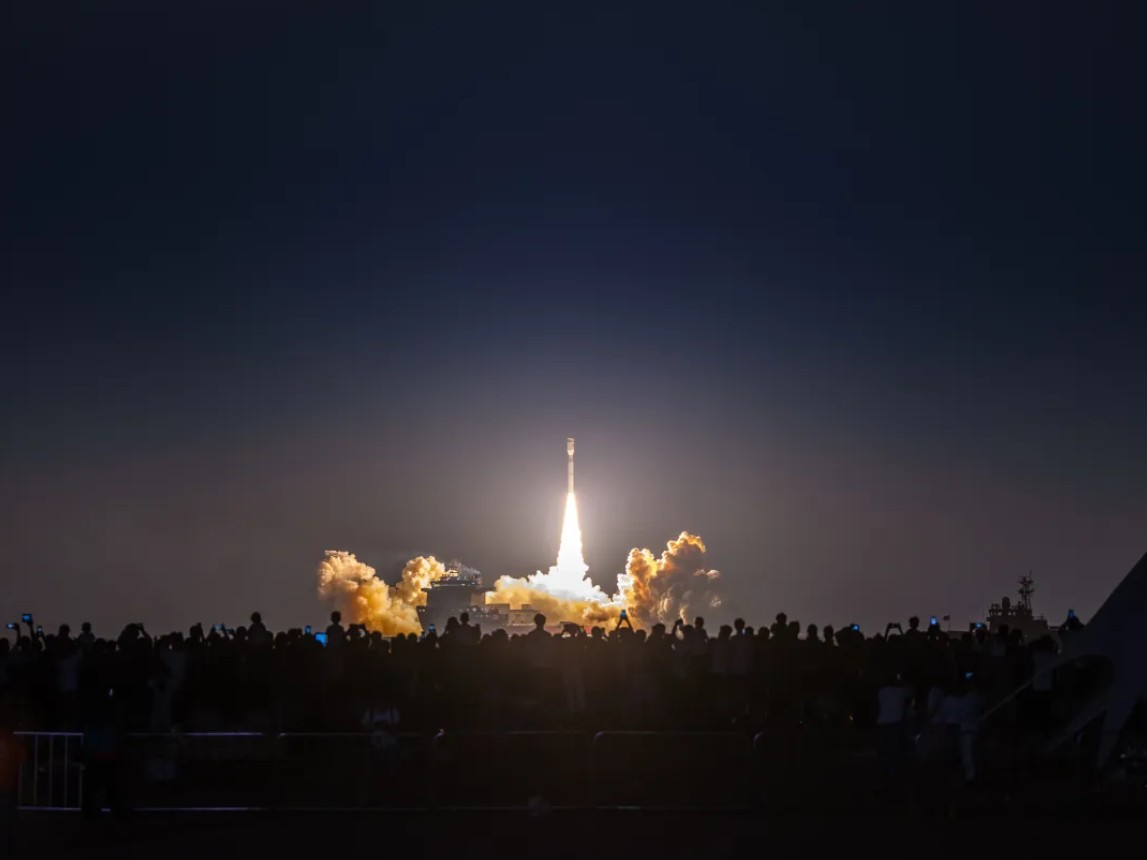HELSINKI — Geely’s space subsidiary has secured a $281 million investment to accelerate deployment of its Geesatcom Internet of Things constellation and build a new global headquarters.
Zhejiang Spacetime Daoyu Technology Co., Ltd., or Geespace, signed a strategic cooperation agreement with Zhejiang Financial Holdings Investment Co., Ltd., Hangzhou State-owned Capital Investment and Operation Co., Ltd., and Hangzhou High-Tech Jintou Holding Group Co., Ltd., Sept. 19, also securing $281 million (2 billion yuan) from the Zhejiang New Energy Vehicle Industry Fund, according to a company statement.
The funds have been earmarked for the construction of Geespace’s global headquarters and the global business development of the Geesatcom constellation.
Geesatcom currently has 52 satellites in orbit for its IoT constellation, and Geespace says the first phase of 64 satellites is to be completed this year. At time of reporting, a Jielong-3 rocket had just launched from the Eastern maritime spaceport, completing a trio of Jielong-3 sea launches carrying Geesatcom satellites, with the first taking place Aug. 9.
The company said its constellation services have already been deployed in the Middle East, Africa, Southeast Asia, Central Asia, and Latin America, with partnerships established with more than 20 national operators, “laying a solid foundation for global large-scale commercial applications.” Partnerships include those with Azyan Telecom in Oman, ATSS in Saudi Arabia, and Soremar in Morocco, Malaysia’s ALTEL and Argentina’s Orbith.
Geespace says the constellation will provide services for sectors and industries such as intelligent connected vehicles, marine fisheries, construction machinery, low-altitude mobility, emergency communications, transportation and logistics, public infrastructure, energy and water management, and agriculture, forestry, and animal husbandry.
As well as IoT, the company has previously stated it wants to provide broadband connectivity with a 5,000-plus satellite constellation, as well as enhanced precision navigation signals for applications such as autonomous driving. The company began launching satellites in 2022, before the project apparently slowed. Recent agreements, launches and strategic partnerships and investment have reinvigorated the project.
The investment received strong support from Zhejiang province, Hangzhou municipality, and the Binjiang district governments, according to the Geespace statement. This mirrors provincial and local government moves to support commercial space ventures in China, following signaling from the central government that the sector is a strategic priority.
The development signals that Chinese commercial constellations are now receiving strong state-owned investment support. The Zhejiang fund is also tied to strategic industries such as electric vehicles, blurring the distinction between private and state-backed projects. This could also indicate an effort to blend emerging industries efforts, such as EVs and space communications and constellations, fitting into the government’s “new productive forces” growth model.
The level of investment and international agreements already reached signals China’s intent to compete globally in this arena, just as it looks to compete with SpaceX’s Starlink and others through its Guowang and Qianfan/Thousand Sails broadband constellations.
